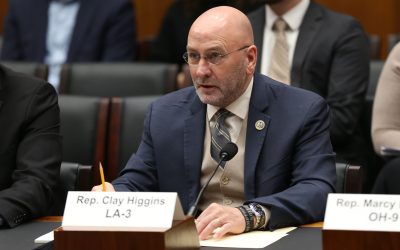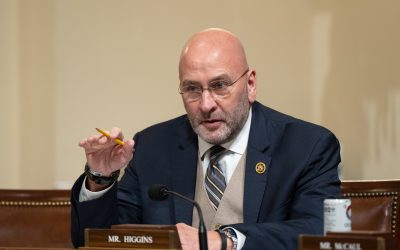A Louisiana congressman is calling on his state’s Department of Wildlife and Fisheries to establish a “bounty” program for Asian carp, an invasive species fish he said threatens the state’s fishing industry.
Rep. Clay Higgins likened the proposed program to one already in place for nutria. That program to curb the presence of the rodent has seen destruction of vegetation decrease by more than 90 percent over a 15-year period.
“Given the results of the [Coastwide Nutria Control Program], a similar program for reducing Asian carp population could prove invaluable to Louisiana’s ecosystem and economy,” the Republican said in the letter address to DWF Secretary Jack Montoucet.
Asian carp were introduced into U.S. waters more than 40 years ago to help clean commercial ponds. Eventually, though, flooding allowed the fish to enter waterways across the Mississippi River basin. In addition to threatening native species and consuming their resources, the carp, which can grow up to 100 pounds, have been known to jump out of the water and injure boaters.
Recently, a number of states have been investigating methods to either repel the movement of the species into their waters or find ways to harvest and process them.
In the upper Midwest portions of the basin, estimates indicate there are 35 tons of Asian carp per river mile.
That includes Louisiana, where the carp have reached Lake Pontchartrain and Vermillion Bay. Earlier this month, the DWF spoke in support of an effort by Silverfin Group, Inc. to create a fish cake from the species and market it for human consumption.
While Montoucet has said that the state’s main goal is to eradicate the carp from state waters, he still saw benefits in supporting the project spearheaded by chef Philippe Parola.
“If it can be turned into jobs for Louisiana while at the same time fighting the growth of the species, then it is a win-win for us,” he said.
Higgins cited Silverfin’s efforts in his letter.
“Louisiana has a unique opportunity to address the growing Asian carp population before it reaches uncontrollable levels by incentivizing commercial and recreational fishermen to harvest them in sufficient numbers,” he said.



